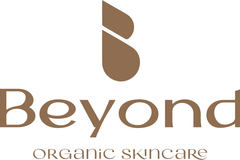Organic vs Natural vs Certified – What is the difference?
0 комментариев
Organic vs Natural vs Certified – What is the difference?
Organic and Natural Beauty is complicated area due to the unregulated use of the words. To summarise:
- ‘Natural’ can be defined as derived from natural sources, plants and minerals.
- ‘Organic’ refers to ingredients farmed, prepared and grown without pesticides, chemical fertilizers, GMOs, sulphates/parabens - hence a stricter standard once compared to Natural!
Natural products can contain chemicals but that is not the case of organic products. You can assume that a 100% organic product will have between 95-100% chemical free ingredients whilst a 100% natural product would usually have around 50-70%.
- ‘Certified’ Natural or Organic validates the actual volume of natural or organic ingredients within the product and adheres to strict standards so you know you will be receiving at least 95% organic or natural ingredients within the final product.
Your skin deserves the best, so ensure to check the percentage of Natural or Organic ingredients within the product you are using. Some brands use 1% of a Natural or Organic ingredient and mislead by labeling the product as Natural or Organic. To ensure you are using a reliable brand that uses sufficient Natural or Organic ingredients – go Certified Organic or Natural which ensures 95% organic or natural ingredients.
Beyond Organic Skincare is Soil Association Cosmos Organic certified for all Signature Organic Range and Soil Association Cosmos Natural certified for all our Purely Natural Range. We truly care about what goes onto skin and what happens to our earth.
Any product sold as ‘organic’ in the UK has to comply with organic regulation requirements written into a set of Standards. The Soil Association Certification cover the UK’s organic regulations (EC 834/2007 & EC 889/2008 as retained in GB and as applied in the EU if you are in Northern Ireland)) and include some additional, higher standards in some key areas e.g. livestock production, GM, additives and packaging.
Having such a certification is a guarantee that all the products and manufacturing processes taken have followed and continue to follow the strictest regulations by using the finest ingredients, taking the planet into account to produce high quality skincare for you.
Below we have list the top 3 Certifiers in order:
1. Soil Association and Cosmos
|
|
|
|
 |
|
Soil Association (SA) is UK's leading organic certification body and food and farming charity. SA has helped developed a new Cosmetic Organic Standard (COSMOS) to harmonise organic standards globally – hence both names on the logo. To receive Cosmos Organic certification (as per Beyonds Organic and Natural Products), 95% of all ingredients in any product must be organic or natural. Everything is cruelty free, sustainably sourced, and traceable, following green chemistry principles. |
|
2. NaTrue
|
|
|
A non-profit organisation NaTrue is an internationally recognised logo for natural cosmetics and have a strict criteria in order to be labelled organic or natural - and meet high standards of sustainability as well as being cruelty free.
|
|
3. EcoCert |
|
|
The first certification body to develop standards for 'natural and organic cosmetics', the 'Natural Cosmetic' label means it has a minimum of 50% of all plant-based ingredients in the formula, and a minimum of 5% of all ingredients by weight must come from organic farming. For both the natural and 'Organic Cosmetic' label a minimum of 95% of all plant-based ingredients are in the formula and a minimum of 10% of all ingredients by weight must come from organic farming. |
|





0 комментариев